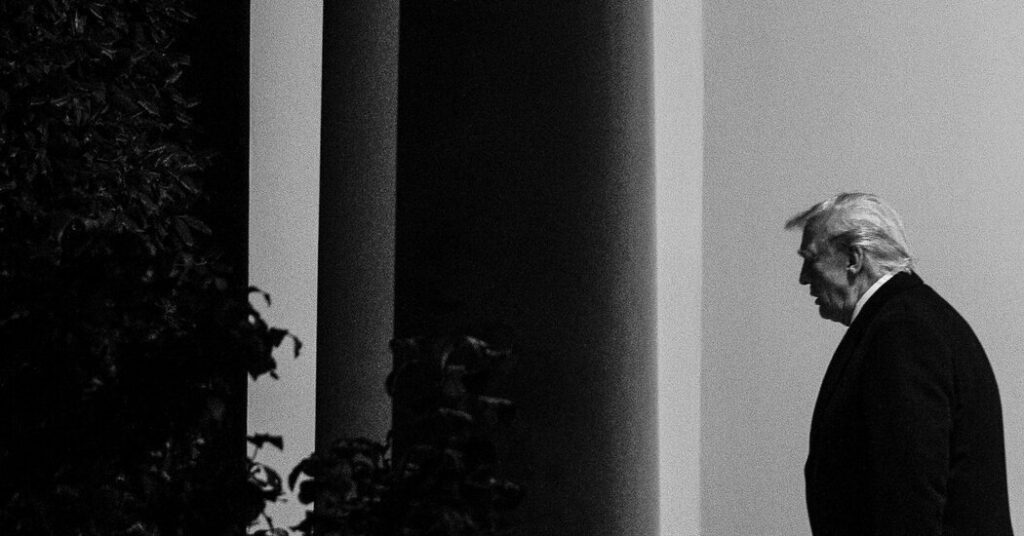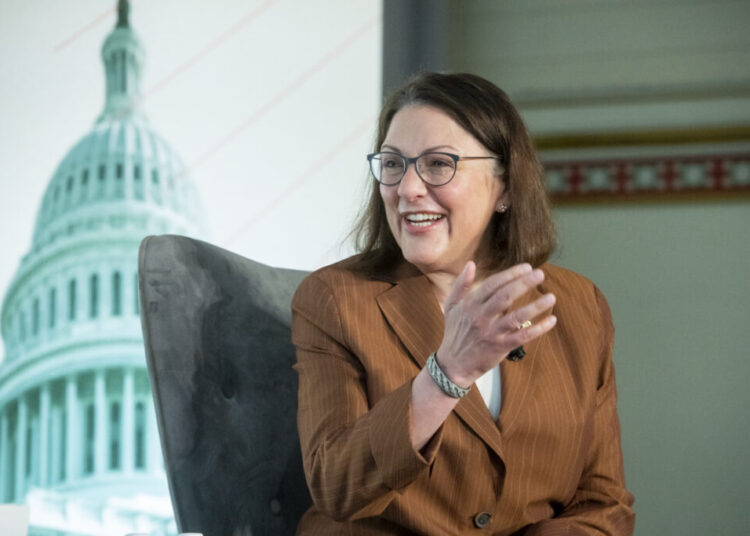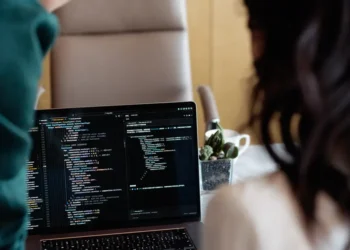Donald Trump, well on his way to becoming the most corrupt president in American history, will almost certainly escape criminal prosecution after leaving office.
Even though Trump has defied the law and the Constitution more egregiously in his second term than he did in his first, most legal experts agree that he will face few, if any, of the kind of prosecutions he was confronted with after grudgingly leaving office in 2021.
The one possible, though far from probable, exception is the Trump family’s involvement in the cybercurrency business through its 60 percent ownership of World Liberty Financial. World Liberty has made profits exceeding hundreds of millions from investments by men who have been granted pardons and by corporations that have benefited from the halt or suspension of regulatory investigations by the Trump administration.
On Jan. 10, speaking at a news conference before returning to the White House on Jan. 20, Trump said that he would turn over all management responsibilities of the family’s business empire to his sons Donald Jr. and Eric and claimed that he would not be involved in day-to-day business decisions.
While Trump’s culpability in the case of his family’s crypto business may seem crystal clear to some, legal experts contend that the conservative majority on the Supreme Court has so muddied the law that prosecutors would face many hurdles — perhaps insurmountable — trying to bring a case against him.
During the four years he was out of office, Trump was charged with more that 80 criminal counts in four separate criminal proceedings.
In large part, Trump owes his current insulation from potential prosecution to the 2024 Supreme Court decision Trump v. United States, which granted the president “absolute immunity from criminal prosecution for actions within his conclusive and preclusive constitutional authority. And he is entitled to at least presumptive immunity from prosecution for all his official acts. There is no immunity for unofficial acts.”
Philip Lacovara, former counsel to the Watergate special prosecutor and deputy solicitor general, replied by email to my questions about Trump’s legal prospects.
”In my view,” Lacovara wrote,
there is virtually no chance that Trump will face criminal prosecution.
The Supreme Court’s Trump immunity decision last year provides Trump (and any future presidential felons) with a get-out-of-jail-free card for committing federal felonies, and it would be impossible, as a practical matter, for a post-Trump prosecutor to pursue those misdeeds through the criminal process.
In testimony he gave last year before the Senate Judiciary Committee, Lacovara argued:
The majority opinion declares that the president’s instructions to the Department of Justice about whom to investigate and prosecute fall within his “exclusive authority and absolute discretion.” As a result, he is entitled to “absolute immunity” for whatever he does in weaponizing the Justice Department to harass and abuse his perceived political enemies.
Even before the ruling in his favor in the 2020-election-interference case, Donald Trump had threatened to do precisely this, if re-elected — to order “his” Justice Department to punish persons whom he considers “enemies,” including any former aides and high-ranking military officers whom he views as disloyal because they revealed his seamy side.
Trump has also gotten the message. On Feb. 15, he proclaimed on social media that he was free of legal constraint: “He who saves his Country does not violate any Law.”
What has Trump done since taking office on Jan. 20, 2025, that under different circumstances could warrant investigation? This column is not long enough for a comprehensive list, so let’s take two examples.
First and foremost, Trump’s administration has turned the pursuit of justice on its head. He has defined all scrutiny as an abuse of the law, uses that delegitimization to justify retaliatory investigations, and in doing so converts legitimate oversight into grounds for criminalizing the overseers. Any public official considering an inquiry into the Trump administration risks his or her career and a possible sentence to prison.
On Sept. 20, in a private message that Trump posted publicly on Truth Social, apparently by accident, Trump bitterly complained to Pam Bondi, the attorney general, that no charges had been handed down against James Comey, a former F.B.I. director; Senator Adam Schiff of California; or Letitia James, the attorney general of New York, even though, as Trump put it, “They’re all guilty as hell.”
Trump was unrelenting:
We can’t delay any longer, it’s killing our reputation and credibility. They impeached me twice, and indicted me (5 times!), OVER NOTHING. JUSTICE MUST BE SERVED, NOW!!! President DJT.
The Justice Department indicted Comey on Sept. 25, five days after Trump’s Truth Social post, and James on Oct. 9. On Monday, Judge Cameron McGowan Currie threw out the charges against both Comey and James, because the U.S. attorney who brought the case had been appointed unlawfully.
It’s not just about Comey, James and Schiff, though. Jason A. Reding Quiñones, the U.S. attorney for the Southern District of Florida, is currently investigating claims that key Obama administration officials conspired to discredit Trump by accusing him of working with Russians to win the 2016 election.
Quiñones has subpoenaed John Brennan, a former director of the C.I.A.; James R. Clapper Jr., a former director of national intelligence; Peter Strzok, a former F.B.I. counterintelligence officer; and Lisa Page, a former lawyer at the bureau.
Ruth Ben-Ghiat, a history professor at N.Y.U., described Trump’s modus operandi in an email responding to my queries:
Trump’s personal enemies become the enemies of the nation and the party. Any entity or person that has sought to hold him accountable or has criticized him or exposed his corruption becomes a high-priority target.
In a May posting on her Substack, Ben-Ghiat wrote:
Authoritarianism involves arranging government to keep the leader and his cronies safe from prosecution and allow them to commit crimes and corrupt acts with impunity. That means judges and prosecutors who uphold the rule of law are always among those harassed and persecuted.
What are some of the laws that are potentially applicable to Trump’s orders that specific individuals be criminally prosecuted?
For one thing, according to the Department of Justice, Section 241 of 18 United States Code,
makes it unlawful for two or more persons to agree to injure, threaten, or intimidate a person in the United States in the free exercise or enjoyment of any right or privilege secured by the Constitution or laws of the United States or because of his or her having exercised such a right.
And then there’s Section 242, barring the deprivation of rights under color of law, and Section 1503, prohibiting the obstruction of “the due administration of justice,” not to mention the Constitution.
As the Congressional Research Service points out:
The Due Process Clause of the Fifth Amendment further states that no person may “be deprived of life, liberty, or property, without due process of law.” Courts have held that this provision prohibits prosecutors from engaging in selective or vindictive prosecution.
With regard to crypto, what is Trump’s potential legal liability?
Throughout his second term, Trump has put on public display his family’s venture into the cryptocurrency business, World Liberty Financial, which has produced profits estimated as high as $5 billion, much of it unrealized paper wealth, and more than $800 million in cash.
Despite a constitutional prohibition on the receipt of money or other benefits from foreigners, foreign governments and foreign corporations, there has been a steady flow of cash from all three. Investors include men Trump has pardoned and companies facing regulatory actions that the administration has dropped or suspended.
What laws might come to the mind of an ambitious U.S. attorney unafraid of losing his or her job looking at World Liberty Financial?
Here are a few statutes our enterprising prosecutor might look up: First, Bribery Of Public Officials, Section 201 of Title 18, which the department describes as “the giving or accepting of anything of value to or by a public official, if the thing is given ‘with intent to influence’ an official act, or if it is received by the official ‘in return for being influenced.’”
Next, there are a few more choices: Money laundering under Sections 1956 and 1957 of the code; honest services fraud, Section 1346; and wire fraud and fraud conspiracy, Sections 1343 and 1349.
I asked Brad Wendel, a law professor at Cornell, about Trump’s potential criminal liability, and he emailed his reply:
I think he’s in the clear. There’s some ambiguity in the Trump v. U.S. case about the core, noncore and outside official duties distinctions, but all of the conduct that Pam Bondi, et al, have been assisting with seems comfortably within the core.
Trump’s abusive use of pardons, Wendel continued, is
within the core of presidential duties; same with ordering D.O.J. investigations. The conduct may be wrong in many different ways, but thanks to the Supreme Court, they’re not crimes for which Trump can be prosecuted.
How about crypto?
Jack Balkin, a law professor at Yale, described some of the difficulties in bringing a criminal case involving Trump’s World Liberty Financial in an email:
“Profiteering” could mean many things. If you are asking whether Trump could be held criminally liable for making regulatory decisions that create a conflict of interest, this is likely covered by the immunity created in Trump v. United States.
If, on the other hand, Trump, acting solely as a private individual, or members of his family, were to violate the federal securities laws, those actions would fall outside his official actions as president and the immunity created in Trump v. United States would not apply.
On the broad question of presidential criminal liability, Balkin argued:
In Trump v. United States, the Supreme Court held that presidents are absolutely immune from criminal prosecution when exercising their core executive functions, which include the power to prosecute and the power to bestow pardons. That means that later administrations can’t go after Trump for his abuse of the Justice Department’s prosecution power and for pardoning corrupt figures.
In effect, Balkin wrote,
the point of the Trump decision was to take almost all future criminal prosecutions of former presidents off the table. Not surprisingly, the court’s decision has given Trump a green light to violate the law and abuse his official powers as president.
Given Trump’s demonstrated proclivities for ignoring legal constraints, it is chilling to think that the justices did not understand the consequences of what they were doing, and even more chilling to consider the possibility that some of them did.
Lacovara, the Watergate prosecutor, wrote:
The irony is that what normally would be impermissible conflicts of interest, intertwining public business with private gain, may provide Trump with protection under the immunity analysis last year, which puts a heavy burden on the prosecutor to show that any plausible action “as president” is really only a private crime.
The very murkiness of the laws governing presidential criminality and misconduct creates a cloud that can only work to Trump’s advantage.
Robert Bauer, a law professor at N.Y.U. and formerly one of the chief legal advisers to top Democrats, argued in an email that
Any question of criminal legal consequences for a former president is now complex on multiple dimensions. The law of presidential accountability has become thoroughly tangled, a mess, and in need of serious rethinking and reform.
The legal issues vary according to the questions raised. Uses of the pardon to reward friends and political allies, or in schemes of self-enrichment, present questions of how the criminal laws apply to the exercise of this power, and the legality of presidential self-pardons may also come into play.
Similarly, Bauer contended,
the application of the bribery law to a president’s pursuit of business interests while in office raise knotty issues of application, and the effect on those laws of the Supreme Court’s presidential immunity decision is unclear. That decision’s stress on a president’s “conclusive and preclusive” authority over investigations and prosecutions may also affect liability for the abuse of prosecutorial power for political ends.
Regardless of whether or not the Supreme Court unleashed Trump, the fact of the matter, as Randall Kennedy, a Harvard law professor, pointed out in an email, is that:
The Trump administration is acting in a fashion that displays a brazen disregard for law whenever it poses an impediment to its ambitions, whether that involves attempting to punish adversaries (James Comey) or attempting to extort law firms (Coie, Perkins) or universities (Harvard).
Trump is, in effect, a renegade president whose administration, in Kennedy’s words,
is uninhibited by any decent sense of self-restraint. It will push as far as circumstances allow. If it believes that it can get away with killing people on the high seas without the restraints of domestic or international law, it will continue to do so — law be damned. One has to acknowledge the audacity of the Trump administration.
Perhaps most important, Kennedy wrote:
Americans cannot say, however, that they were surprised by these Trumpian outrages or did not know what was being done in their name. Trump advertised what he planned to do and has acted with open lawlessness.
The very fact that this nefarious, ethically vacant man — a man who wears his venality on his sleeve — could twice win the presidency and in all likelihood retire with billions in ill-gotten gains suggests that America is dangerously close to falling into a political sinkhole.
The Times is committed to publishing a diversity of letters to the editor. We’d like to hear what you think about this or any of our articles. Here are some tips. And here’s our email: [email protected].
Follow the New York Times Opinion section on Facebook, Instagram, TikTok, Bluesky, WhatsApp and Threads.
The post Why Trump Won’t Face Prosecution This Time Around appeared first on New York Times.




